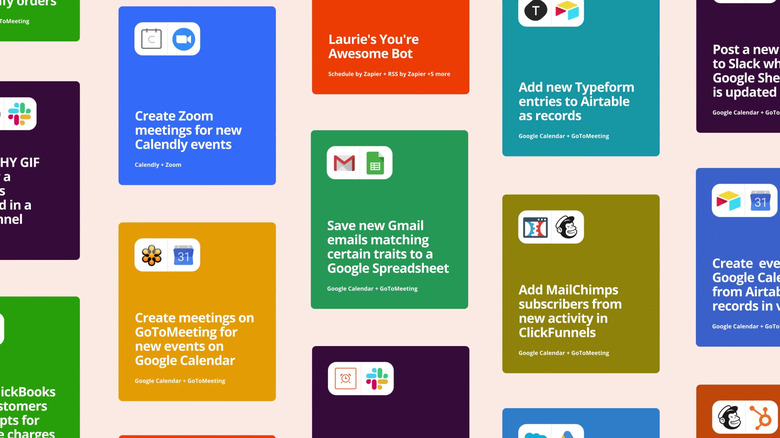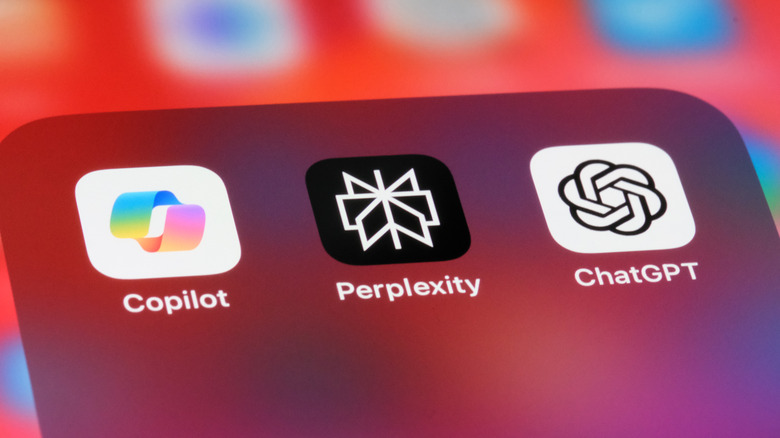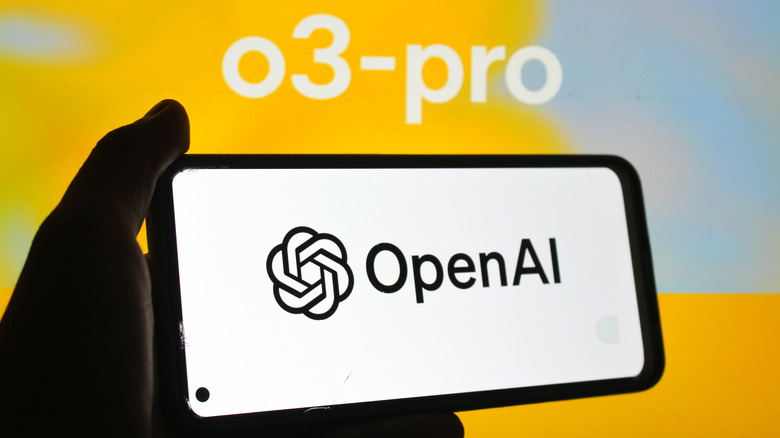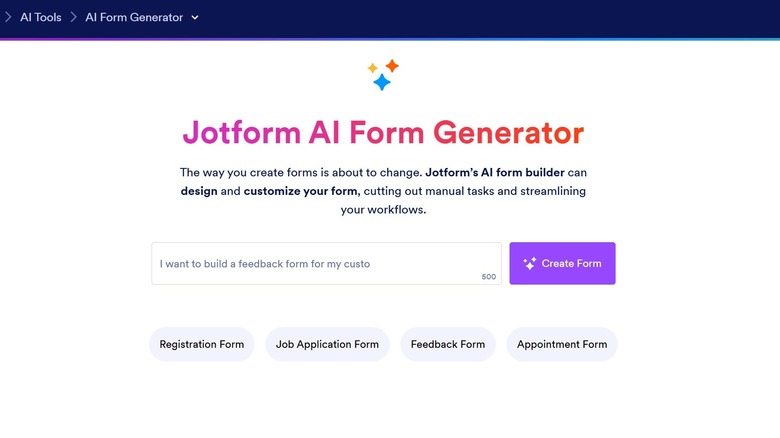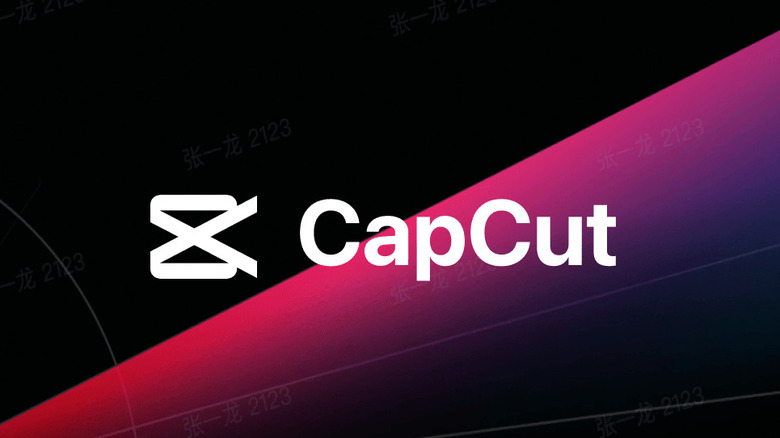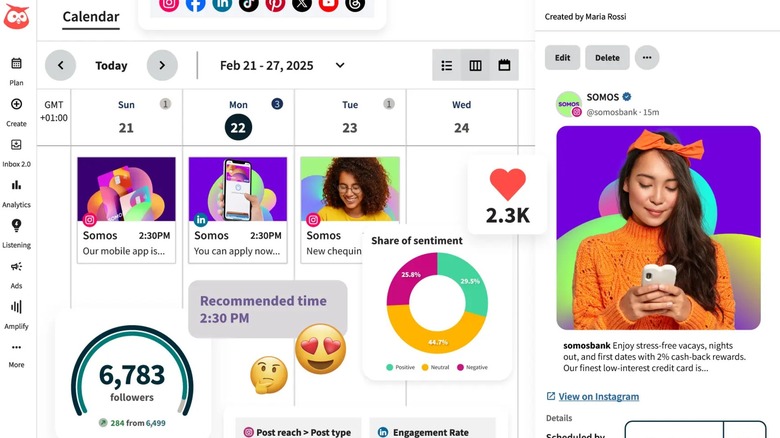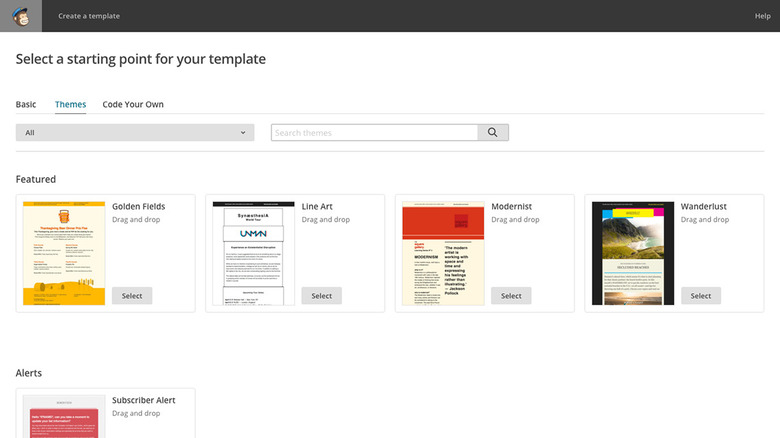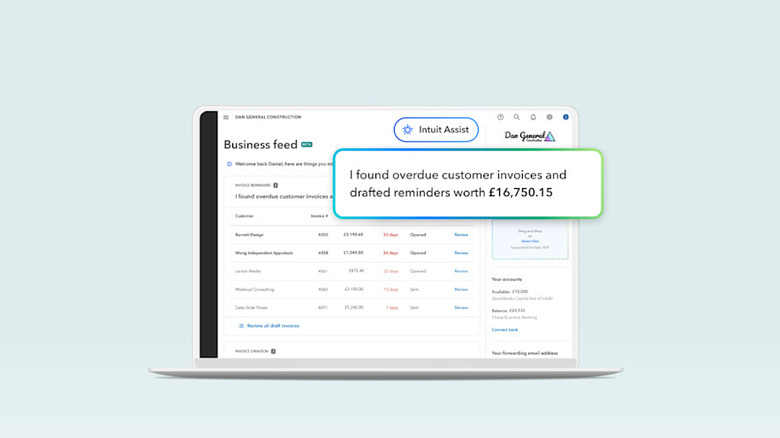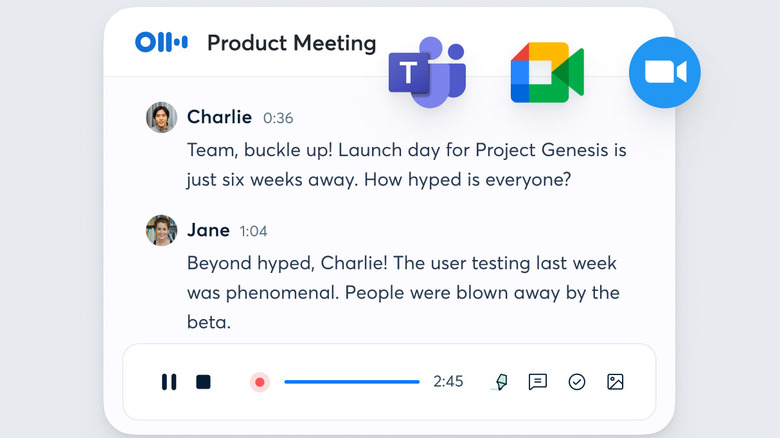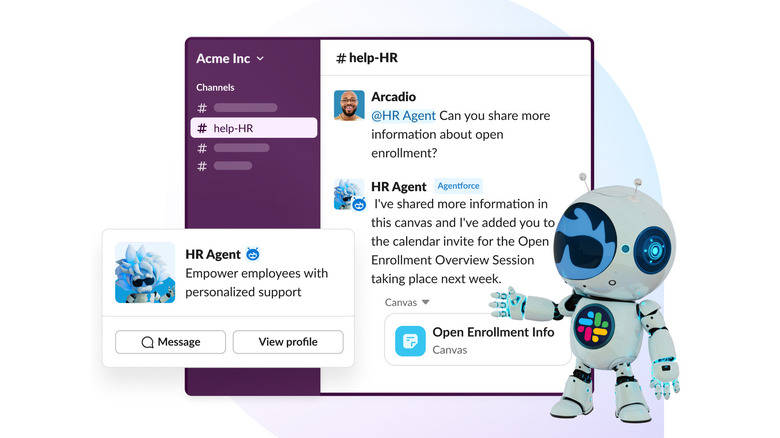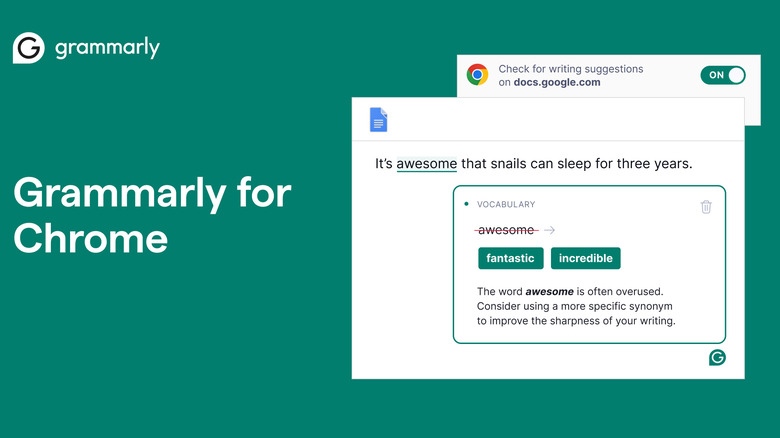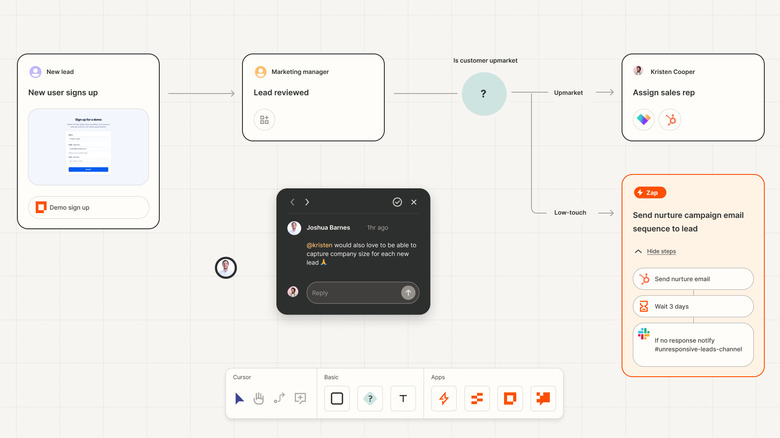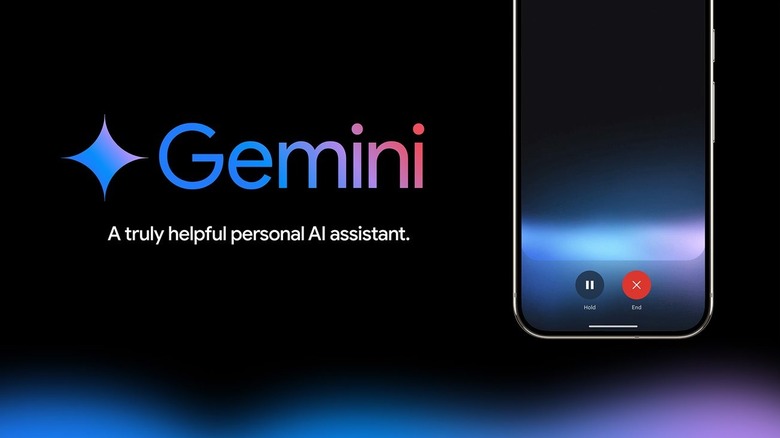13 Best AI Tools For Your Small Business, Ranked
AI has come a long way in a short time. Although there are bound to be some bugs as technology evolves, there are plenty of benefits to appreciate when it comes to humans becoming more efficient without expending more effort. Plus, some of the biggest benefactors are small business owners. When you don't have the budget or space for a full team of employees to handle every task, a long list of to-do items can fall on you as the boss and owner. Automated tools may become a necessity to keep things running. Not only that, but AI tools can also help you elevate your business and do more than just keep the lights on.
Tons of tools can help streamline your work day (and your entire business model), but which ones are really the most useful for day-to-day tasks? We've come up with a list of AI tools that are handy for small businesses. These range from helpful to the ultimate best at the bottom. Stay tuned for our methodology after the list.
Perplexity AI
Depending on your industry, market analysis and research might be an invaluable tool. Yet contracting with an agency can cost a lot, without the flexibility to change things up when you feel like you need to move in a new direction. Enter the AI model. While any old AI chatbot can give you answers to a variety of questions, Perplexity AI is different from OpenAI's ChatGPT in that it gives more nuanced answers with sources.
While you can use Perplexity AI for free, small business owners might benefit from the paid plan. Perplexity Pro lets you choose from different search models (like GPT-4.1, Claude, and others) and run more complex analytical queries. A research mode also generates reports with more in-depth information than a simple search could turn up.
To learn more about how Perplexity AI works, I asked it to devise a plan to help a small business owner loosen the reins and hand tasks over to a team. Perplexity outlined a plan for me that included steps like developing SOPs (standard operating procedures), auditing and categorizing tasks, delegating the simplest ones first, hiring for attitude over skills, and building feedback loops for continuous improvement. That includes sources for each suggestion. Not bad!
OpenAI (ChatGPT) Chatbot
Any business with more than a handful of clients can benefit from having a set process for onboarding and answering questions. But if you have a small business with a ton of customers — think retail or a product that takes some time to learn — an FAQ section might not be enough to charm your audience. If that's your business, an OpenAI chatbot might save time for both your staff (or yourself) and your customers. When you think about it, most chats you've had with company representatives in recent years may well have been AI, and there are many reasons for that.
Companies can build OpenAI agents based on their information databases, train chatbots on human interactions with customers, and install guardrails that govern the chatbots' behavior. Though wading into chatbot creation requires more technical knowledge, hiring out the build process could make this doable for small businesses that need chat support but don't have the staff (or budget) to make it happen.
In addition to enhancing your customer-facing functions, ChatGPT can also do things like make spreadsheets less of a chore. However, there are some other well-regarded tools for managing data and creating content, so we'll leave ChatGPT in the chatbot category.
Jotform
As a small business owner, you'll know all too well how important consumer data is. Knowing your customer's thoughts about your wares is crucial, whether you're selling a product or service. One way to get information from your audience is by soliciting feedback through surveys, but creating and formatting them can easily become a monumental task. Especially if you're not comfortable with the logic built into forms or the different variables you can choose from, using an AI form generator can make things so much easier.
Here's where Jotform comes in; the Jotform AI form generator can create a form from a brief prompt. For example, I asked it to make a feedback form to solicit opinions from my fake customers for my fake shoe brand. From a sentence-long prompt, Jotform created a form that ranked my customers' satisfaction, solicited suggestions for the product, asked whether they would shop with us again, and gleaned demographic data like age, gender, and location. As with any AI tool, you might need to tweak your prompt, but the basic bones are easy enough to assemble in a minute or two. You may also be tempted to check out all of Jotform's other AI generators, for everything from apology letters to recommendation letters to quizzes.
CapCut
In a past role, I dabbled in CapCut for creating visuals to accompany human-written articles. At the time, the technology was new and highly impressive. Today, CapCut is still one of the most-mentioned tools online when making videos from scratch based on text, though other comparable tools might achieve the same effect.
As a small business owner, you'll need to appeal to your consumers on various platforms. Social media sites, including Meta brands, YouTube, TikTok, and others, are heavily visual platforms, so missing video might mean missing out on sales. With AI tools like CapCut, you can easily become a video editor without any experience at all.
Back when I used CapCut, you could also swap out the generic visuals for actual images of your products or content. This is a great feature for small companies that want to be personable in their video content, without getting too personal. However, since there have been concerns about CapCut being banned in the U.S., you may want to consider bookmarking some alternatives for mobile video editing.
Hootsuite
These days, social media sites like Meta have in-app scheduling tools, but back in the early days of freelancing, I often used Hootsuite to schedule social media posts across platforms. Hootsuite did, of course, follow industry trends and adopted AI media generation. While there is plenty to disagree over in the debate about AI, used carefully, AI social media tools could be beneficial for your small business. If nothing else, using AI-generated text can help you get the tasks out of the way faster, without losing the strategic element in your posts.
After all, Hootsuite's AI tool for generating social media captions has been trained on best practices. The platform also delivers all kinds of analytics you can check out to tweak your social media campaigns, including social listening, which tracks mentions of your brand and recent trends. It also brings Canva into the interface, making it even easier to whip up a batch of posts and bulk schedule them. With the help of Hootsuite's AI tools, you can get back to the actual business parts of being a business owner, without letting your brand's social media presence slip.
Mailchimp
Mailchimp is another big name in the small business world, and I know many business owners who swear by it. Not only that, but Mailchimp claims that it's the number one email marketing and automations platform (based on 2023 data), which is definitely saying something. Mailchimp has a lot of built-in tools that help make email campaigns easier and less painless to schedule, from pre-made templates to A/B testing to suggestions on writing the best subject line with the highest open rate.
AI-assisted writing is a neat feature, and it evaluates your subject lines before beginning to write its own based on your history. One complaint I've heard about Mailchimp is that its pricing scheme can be frustrating, because it's based on your subscriber count. While a free trial is available, maintaining a list of 5,000 subscribers will cost you at least $100 per month.
If you can afford it, this might be one of the best AI tools for small businesses in industries where direct email is the best means of informing and selling to your audience. However, other email clients have similar tools, too, if you'd prefer some alternatives to Mailchimp.
Canva
Being a small business owner takes talent, but that doesn't necessarily mean you have the vision of a graphic designer or the prowess of a video editor. If the visual part of the operation is intimidating or frustrating for you, the graphic design platform Canva might be a perfect pairing for your business. Whether you need to print up a poster to advertise an event, want to make a GIF for social media, or just need a specialized form for your business, Canva can do all of that. There are some caveats, like that Canva uses RGB rather than CMYK colors, which can lead to surprises when you print out your designs.
However, Canva's AI features can take the pressure off your creative muscle by making graphics, editing photos, and offering pre-made templates for almost any project you can imagine. You'll even find video templates you can customize for social media or your website, which means just about anyone can be a designer thanks to the platform. You can also make fun business-adjacent things like vision boards in Canva, which could be a worthwhile aside if you're looking to plot the future of your small business.
Quickbooks Intuit Assist
Especially if you already use Quickbooks for business, Intuit Assist is going to be a no-brainer. It's one of the best AI tools to help you make sense of your numbers because it's built into Quickbooks, so it works with a platform you likely already know. Quickbooks categorizes expenses, creates reports, and generates invoices, all in one system.
While there are a ton of features built into Intuit Assist, some of the most widely useful features are probably the ability to create an invoice from a handwritten note, having a quick chat with a bot to fill in expense reports, take a closer look at expenses and find discrepancies, and import crucial forms and paperwork.
At the time of writing, Intuit Assist also had a customer agent in beta testing. Similar to other chatbots, the Customer Agent function is said to help with lead generation thanks to "an AI agent that never drops the ball." Another beta tool, Project Management Agent, promises to keep you on the straight and narrow for both budget and time constraints. If focusing on other tasks while AI tracks down and manages more business for you sounds like a dream come true, you might want to get on the Quickbooks bandwagon.
Otter AI
Otter AI is another tool I had experience with shortly after it hit the market, and I was immediately intimidated and impressed. As the dedicated notetaker at my former company, I felt a bit put out by Otter, but it was still an awesome tool. Otter AI automatically transcribes your virtual meetings, with brief summaries so you don't have to hunt through the notes to understand what you missed (whether you were actually present or not).
One of the neatest features is that Otter pulls out action items and lists them. Though it may not always get everything right (maybe someone mumbles or a to-do item is something that's done every day anyway), it makes sense to have a virtual assistant taking notes if your team is small enough that there's not a real assistant to do so.
Though you can refer back to the meeting transcript anytime, you can also query Otter, asking questions about the key points of past meetings. In that way, Otter functions like any other AI chatbot, recalling information for you in seconds. However, Otter has also launched voice agents, which means your AI meeting assistant is essentially a super-powered Siri in a business suit.
Slack
Slack is an invaluable tool for many companies I've worked with throughout my career, but did you know it now has AI add-ons that could be beneficial for your small business? The lowest-level paid plan comes with basic AI features that make it an even more invaluable application for your small business, but the more you upgrade, the more add-ons you get.
For example, while the free plan has no AI options, the pro plan includes conversation summaries. Gone are the days of scrolling through your team's messages to try and track a conversation. Instead, you can get a brief summary to see what the fuss is all about, and scroll back only if you need to respond to someone.
Higher-level business and enterprise plans include more AI elements, like workflow generation, AI search, daily recaps, file summaries, and more. Of course, even at the base level, Slack has a bunch of hidden features you might not know about, but should. For example, app integrations let you automate tasks, set your status as Away during Google meetings, get email alerts in Slack, and more. Even for small teams, the ability to communicate quickly and efficiently is a major plus, and the AI benefits are icing on the cake.
Grammarly
For small business owners who aren't enthused about all the writing business ownership takes, Grammarly's quick fixes can help. In contrast with other AI tools, Grammarly doesn't do all the writing for you. However, it does offer plenty of help if you're struggling with how to word things. Grammarly is especially efficient at making your writing easier to read, as well as correcting spelling and grammar mistakes — at least most of the time.
I once worked for a company that required a specific Grammarly score for all content we wrote, which was sometimes impossible without accepting 'fixes' that weren't really fixes. While you shouldn't take any AI tool's offerings as gospel, Grammarly can greatly help with those late-night emails or grumpy customers. As a bonus, it works within most mail clients and other systems, so you don't have to leave your favorite app to get some spelling support or suggestions on difficult wording. Grammarly also has an iPhone app that you can use anywhere.
Zapier
Zapier is an automation tool that lets you set up a series of automations based on a trigger. Years ago, as a baby freelancer, I was introduced to Zapier while working for a content agency. At the time, we were building preliminary systems for delivering content to clients, and Zapier came in clutch for all of the manual mess we previously dealt with.
For that company, it meant we could click a delivery button in our system, and a Google Document would automatically be modified as view-only and moved to a client folder. Seconds later, the client would receive an email with the location of their document and a request to let us know their thoughts. While we had some complicated Zaps set up, small businesses running things on the simpler side would do well to check out the platform's free option, which allows for two-step Zaps and AI power-ups.
Some possibilities for small businesses with Zapier's AI include automatically posting helpdesk tickets to a Slack channel, request that new hires complete their paperwork by adding their info to a Google Sheet, and automatically generating a Google Calendar of events from a spreadsheet.
Google Gemini
ChatGPT might be all the rage, but I've found Gemini to be the most useful and intuitive for creative pursuits. Google's AI tool is like an amped up Google Search, refining its responses based on your prompts. There are plenty of small business applications with any AI, but Gemini is integrated into Google Suite, making it super convenient for anyone with a Gmail address or a workspace email.
Gemini can do everything from plotting out social media posts for the next six months to recommending ways to cut costs in your business. It can suggest tips for productivity or schedule your tasks, and it could even give you some ideas on who and how to hire for your growing team.
Gemini doesn't always include citations, however, so it's more of a brainstorming tool or an opinionated friend to bounce ideas off of. All that to say, it's great to flex your mental muscles with, no matter your small business struggles. Plus, you can use Gemini AI extensions on your phone for travel information, smart home management, scheduling events, and more.
Methodology
Our list consists of the most tried-and-true small business AI tools we could find, those with positive reputations across the web. Our ranking is based on how useful we think each tool is based on how many industries it could be beneficial in.
For example, whether you sell custom t-shirts or per-hour professional services, you'll sometimes need an AI assistant to bounce ideas off of, and Gemini can do that for any niche. Similarly, Zapier is a tool nearly any business owner can use to save time and increase efficiency. In contrast, Perplexity AI's research tools are more focused on marketing-adjacent niches and are, therefore, less useful to business owners at large.
